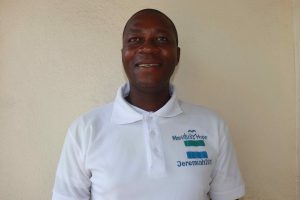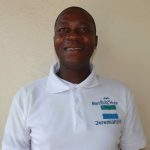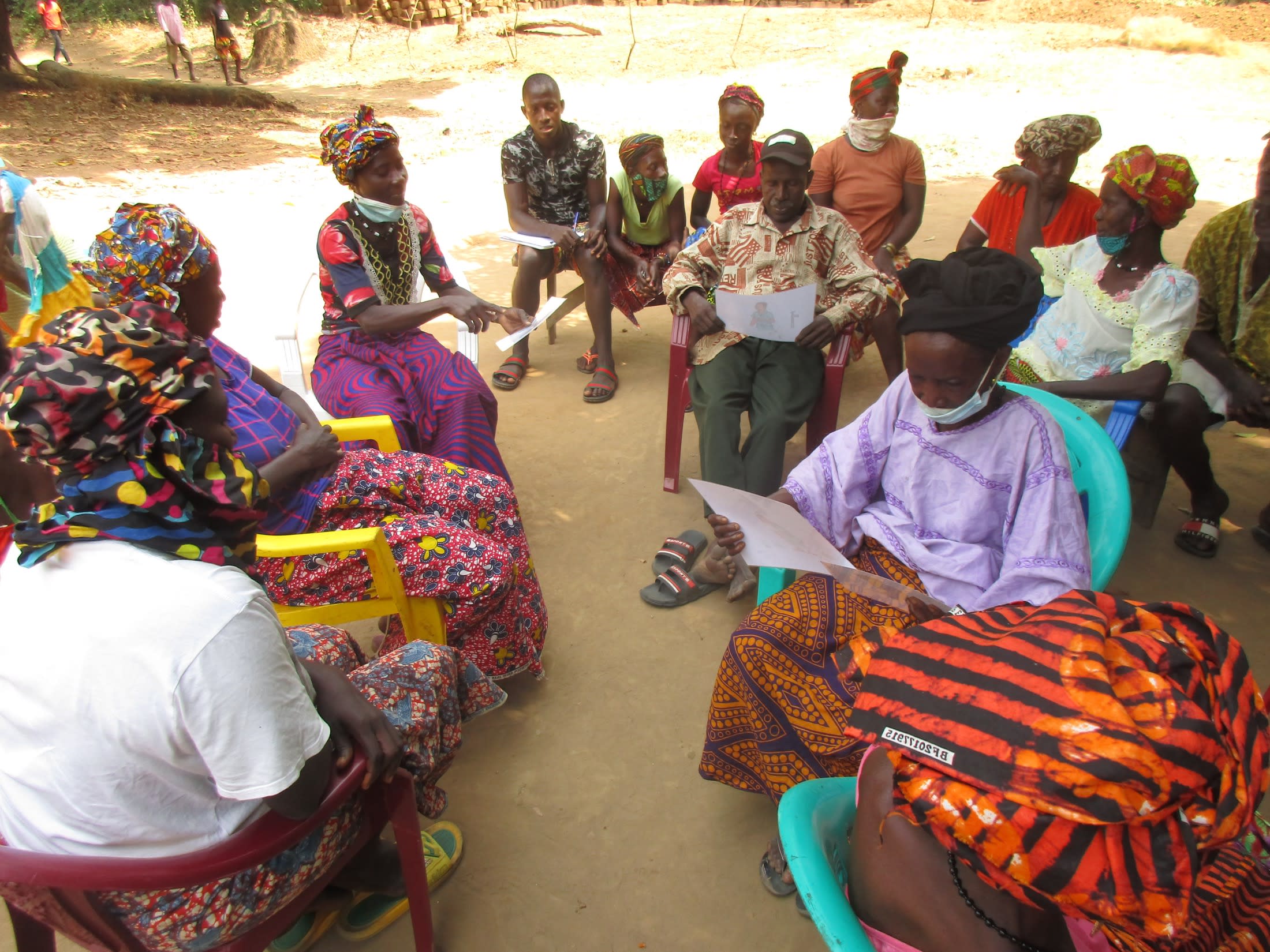Menika Village's water crisis is unbearable for the people who live there, especially the women and children who do most of the water-fetching in the community. It's impossible for them to fetch water without getting soaking wet. The long journeys to the swamp and back while juggling multiple containers and struggling to lift them eat up so much of the community's time and energy.
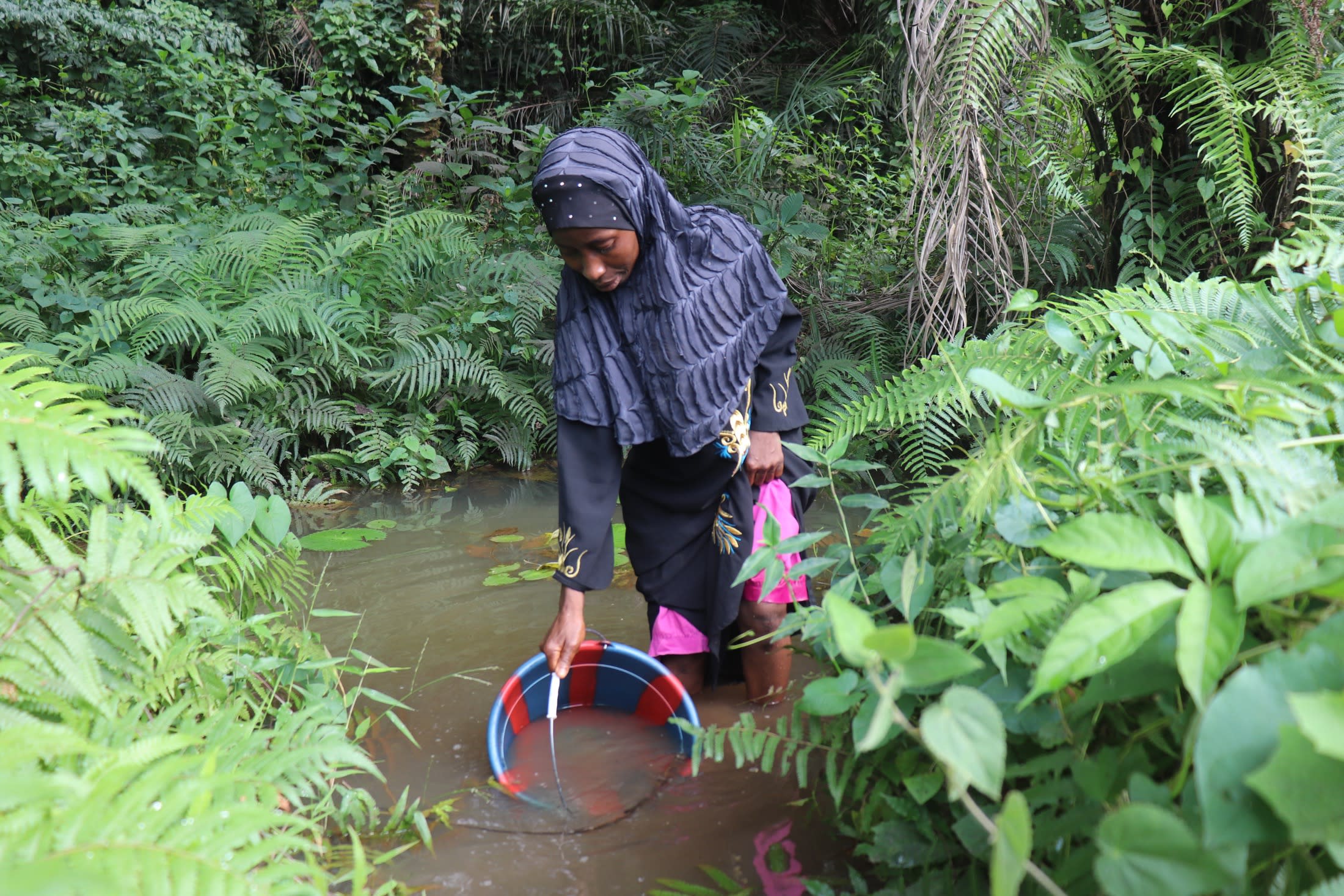
"It has always been so frustrating that I cannot fetch the quantity I need to bring home after a long time and struggle at the well," said Aminata Bangura, 42, a local trader. "After being long at the well, I have [a] limited time to cook and bathe, and [I] go to bed very tired."
"I have to wake up very early every day to fetch water," said 16-year-old Mariama S. in the photo below. "The [swamp] is always overcrowded. [There are] a lot of struggles to fetch water. Sometimes I can only be fortunate to fetch [a] little amount of water, which would not be enough to serve the entire family."
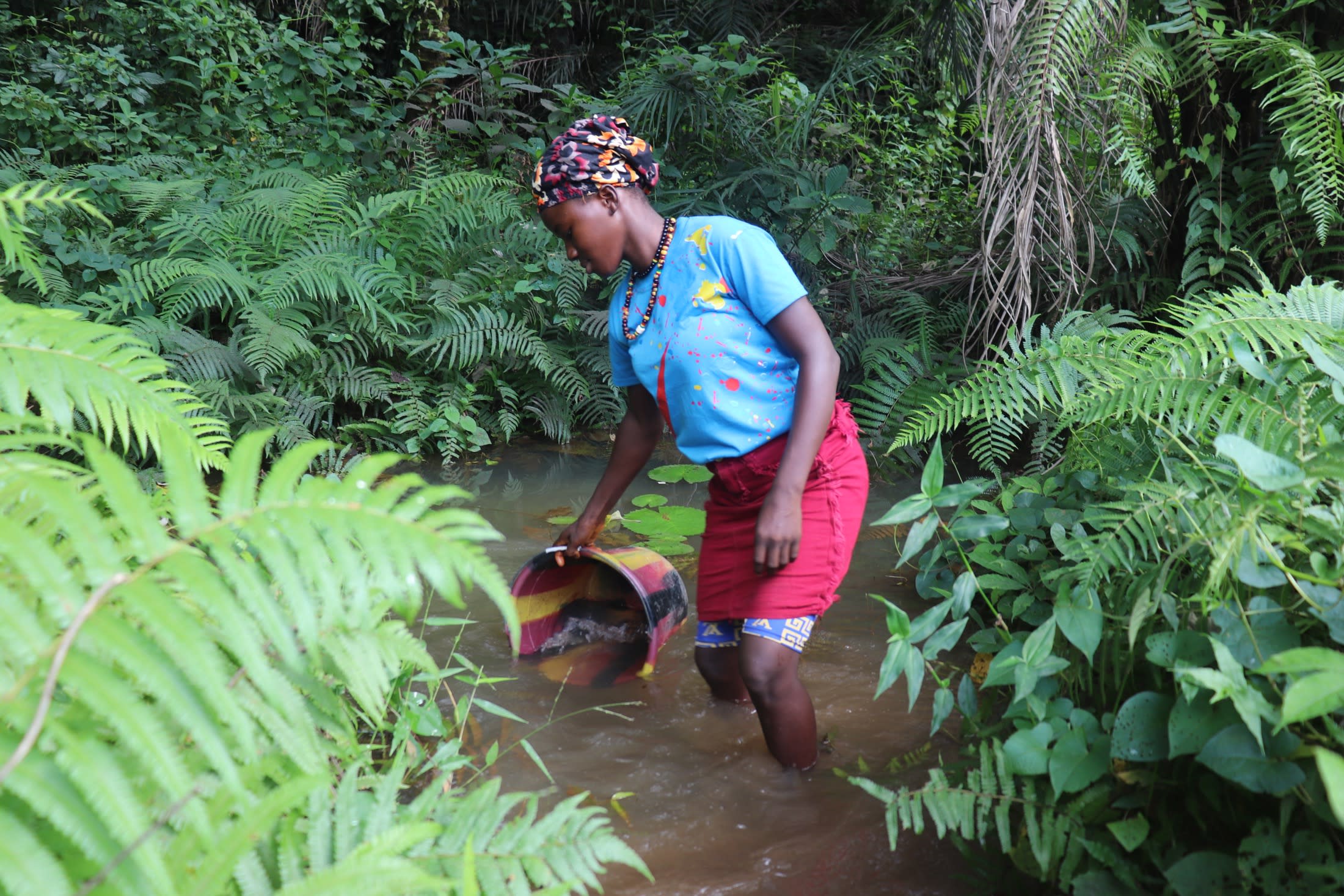
Aminata explained that because it's so difficult to acquire water, she puts off tasks that need to get done, like laundry, bathing, or even cooking. She and her family often go to bed hungry rather than sending anyone back to the swamp for more water to cook dinner. Other times, they have resorted to paying for water even though they don't have a lot of money to spare.
Mariama also has trouble performing day-to-day tasks because of the community's water situation, like laundry and helping her father to clean fish to sell at the local market.
"I only have [one] school uniform I need to wash after school, but it is also difficult to fetch water every day after school," Mariama said. "There was a time I washed my uniform late, and it did not dry 'til morning when I had to wear it soaked to school. My friends mocked me, and I became discouraged that day. I only lauder my clothes and relatives’ clothes once a week because I become fatigued after spending more energy fetching water from the swamp."
"I am always worried when my father returns home with fish from the sea, because [then] I have to fetch more water to process them," Mariama said. "Sometimes it [is] a half-night task, which affects my schooling in the morning."
Aminata and Mariama's energy is also leeched from them by water-related illness. The swamp's murky and foul-smelling water regularly infects community members with typhoid and dysentery, and both of our interviewees complained of constant stomach pains and headaches. Getting water from this treacherous swamp in the best of health would be a challenge, let alone when their bodies are constantly fighting waterborne disease.
Not only is the water difficult to reach and contaminated, but it is also home to venomous snakes, whose bites have hospitalized several people.
"My elder sister fell at the [swamp] because she was chased by a snake while carrying water to [her] house," Aminata said. "She broke her foot and [has] not [been able to] do any work for over two months now. I have to help her do some of her domestic activities. This is a bad situation which is hard for us to bear."
We have plans to build the community a new well right in the center of town, which will free up so much time and energy for Menika's people. With more time and health on their side, who knows what they could accomplish?
What we can do:
New Well
Where we will be drilling is centrally located and will relieve many people of the long journey to fetch water and the challenge of accessing clean water.
Our team will drive over the LS200 mud rotary drill rig and set up camp for a couple of nights. Once the well is drilled to a sufficient water column, it will be cased, developed, and then tested. If these tests are positive, our mechanics will install a new India Mark II pump.
By drilling this borehole, Menika and the surrounding community will be provided with plenty of accessible, clean drinking water.
Training
There will be hygiene and sanitation training sessions offered for three days in a row.
Community members will learn how to make a hands-free handwashing station called the "tippy-tap." We will use these tippy taps for handwashing demonstrations and will also teach about other tools like dish racks and the importance of properly penning in animals. We will highlight the need to keep restrooms clean, among many other topics.
This training will also strengthen a water user committee that will manage and maintain this new well. They will enforce proper behavior and report to us whenever they need our help in solving a serious problem, like a pump breakdown.

 Borehole Well and Hand Pump
Borehole Well and Hand Pump
 Rehabilitation Project
Rehabilitation Project








